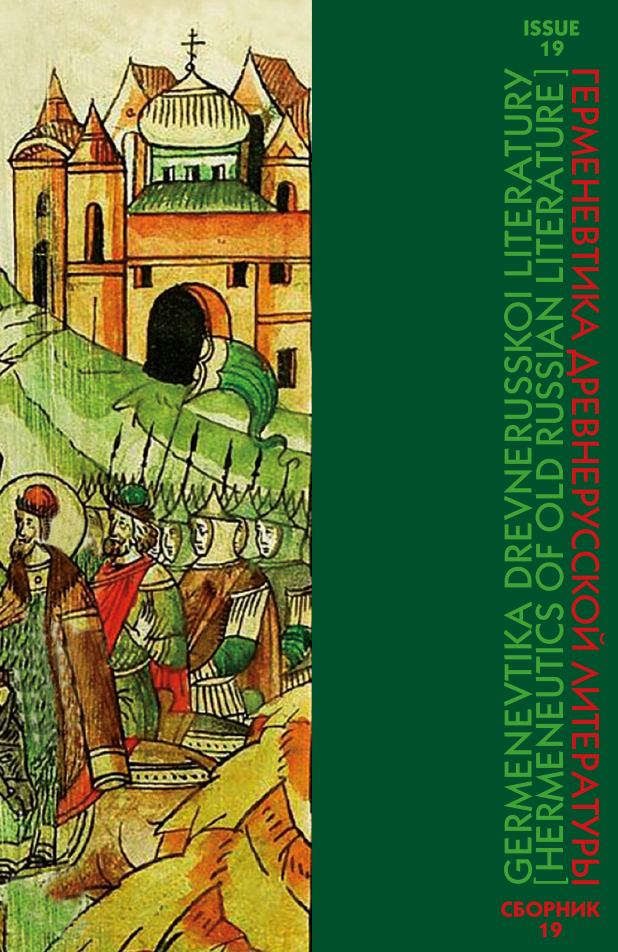Abstract
The article examines the image of M.V. Skopin-Shuisky in the official historiography of Russian kingdom of the 17th century. Prince Mikhail Vasilyevich Skopin-Shuisky (1586–1610) was a remarkable commander of the time of the Troubles and was its “only impeccable hero” (O.A. Tufanova), which was reflected in historical documents, journalism and even folk art of the 17th century. Naturally, the heroic image was used by the first Romanovs for their own purposes, but its content changed depending on the current political moment. Based on the analysis of the Story about Prince Mikhail Vasilyevich Skopin-Shuisky, the Chronograph of 1617, Another Legend, the New Chronicler, the Legend of Kings and Grand Dukes, etc. It is concluded that the image of prince is gradually turning from the figure of a brave commander into a tool for the first Romanovs to assert the illegitimacy of the reign of Tsar Vasily Shuisky. In the future, when the legitimacy of the Romanovs themselves was finally confirmed, M.V. Skopin-Shuisky gets a third-rate role in historical sources or disappears from their pages altogether.
REFERENCES
1 Bender, D.G. “Kniaz’ Mikhail Vasil’evich Skopin-Shuiskii v otsenkakh Ivana Timofeeva” [“Prince Mikhail Vasilyevich Skopin-Shuisky in the Assessments of Ivan Timofeev”]. Grishchenko, A.N., ed. Aktual’nye problemy sotsial’noi istorii i sotsial’noi raboty. Sbornik nauchnykh statei [Actual Problems of Social History and Social Work. Collection of Scientific Articles]. Novocherkassk, Lik Publ., 2019, pp. 18–22. (In Russian)
2 Morozova, L.E. Smuta nachala XVII veka v sochineniiakh sovremennikov [The Time of Troubles of the Beginning of the 17th Century in the Contemporaries’ Writings]. Moscow, Kuchkovo pole Publ., Kimmeriiskii tsentr Publ., 2017. 864 p. (In Russian)
3 Perevezentsev, S.V. Russkie smysly. Dukhovno-politicheskie ucheniia Rossii X–XVII vv. v ikh istoricheskom razvitii [Russian Meanings. Spiritual and Political Teachings of Russia of the 10th–17th Centuries in Their Historical Development]. Moscow, Veche Publ., 2019. 608 p. (In Russian)
4 Tufanova, O.A. Drevnerusskie pis’mennye pamiatniki o Smutnom vremeni kak khudozhestvennyi fenomen: dis. d-ra fil. nauk [Old Russian Written Artefacts about the Time of Troubles as an Artistic Phenomenon. DSc Thesis]. Moscow, 2019. 440 p. (In Russian)
5 Tufanova, O.A. “Povest’ o prestupleniiakh tsaria v sostave istoricheskogo narrativa ʽO bedakh i skorbekh…’.” [“The Tale of the Tsar’s Crimes as a Part of Historical Narrative ‘About Troubles and Sorrows…’.”]. Literatura Drevnei Rusi: materialy X Vserossiiskoi konferentsii “Drevnerusskaia literatura i ee traditsii v literature Novogo vremeni”, posviashchennoi pamiati professora Nikolaia Ivanovicha Prokof ’eva, g. Moskva, 6–7 dekabria 2018 g. [Literature of Ancient Russia: Materials of the 10th All-Russian Conference “Old Russian Literature and its traditions in the Literature of Modern Times”, Dedicated to the Memory of Professor Nikolai Ivanovich Prokofiev, Moscow, December 6-7, 2018], comp. N.V. Trofimova. Moscow, MPGU Publ., 2019, pp. 65–77. (In Russian)






